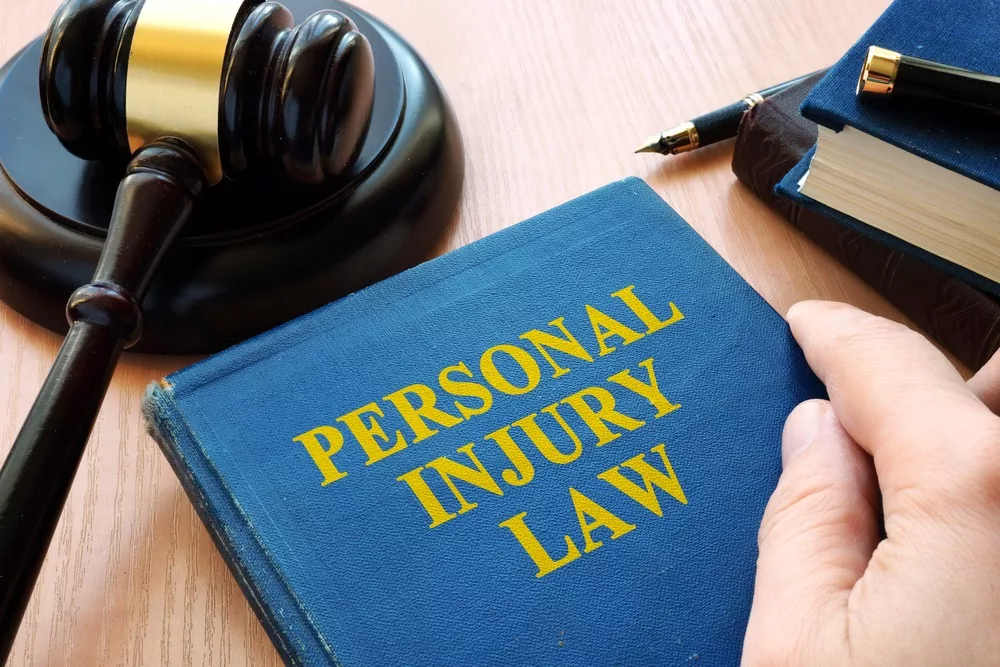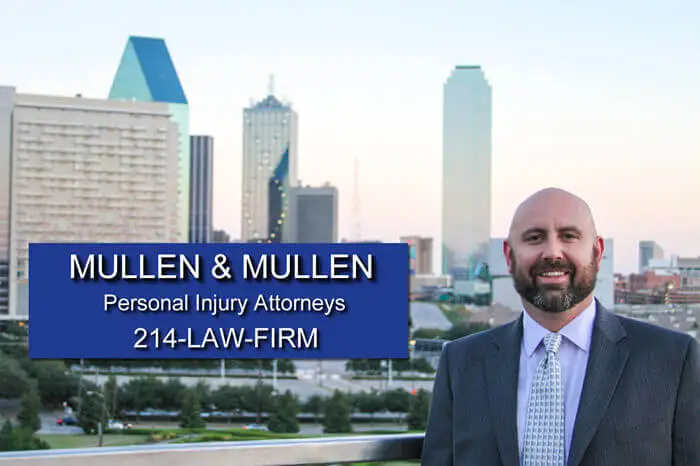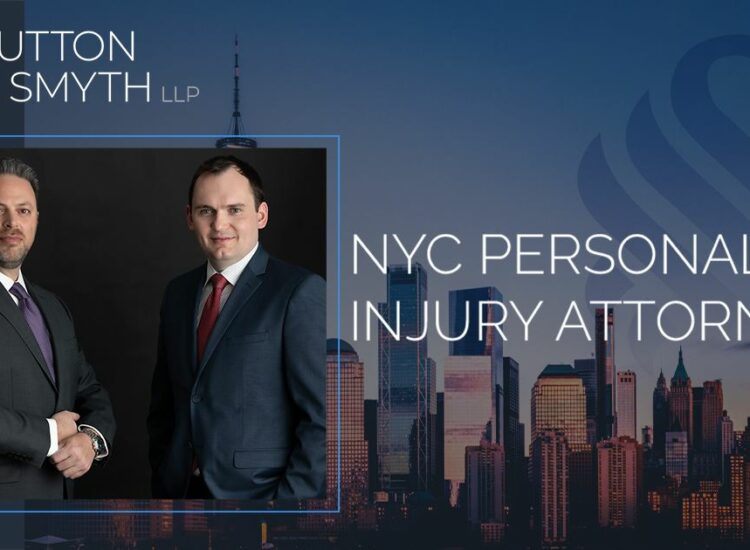You may find yourself in a situation where you’re injured in a car accident, facing overwhelming medical bills and a challenging recovery. You need a lawyer who can navigate the complex insurance claims process, protect your rights, and fight for the compensation you deserve. This is where finding the right personal injury lawyer in Texas becomes critical.
Toc
In Texas, incidents such as car accidents, slip and falls, or workplace injuries can leave you grappling with intricate legal complexities. Navigating the system alone can feel impossible, especially when you’re dealing with medical expenses, lost wages, and the uncertainty of your future. Finding the best personal injury lawyer in Texas is essential to safeguarding your rights and securing fair compensation.
Understanding Your Legal Rights and Options

Personal injury law in Texas revolves around the concept of negligence. To have a successful personal injury claim, you must prove that another party’s negligent actions or inactions directly caused your injuries. For example, in a car accident case, you would need to demonstrate that the other driver’s negligence, such as speeding or texting while driving, directly resulted in your injuries. This could encompass various incidents, including car accidents, slip and falls, medical malpractice, and more.
If you can establish liability, you may be entitled to recover both economic damages, such as medical expenses and lost wages, as well as non-economic damages, including pain and suffering and loss of quality of life. However, it’s crucial to act promptly after an injury to protect your legal rights and preserve evidence. In Texas, the statute of limitations for most personal injury claims is two years from the date of the incident. While this two-year timeframe generally applies, there are exceptions. For instance, claims involving medical malpractice may have a shorter statute of limitations.
It’s also important to note that Texas follows a “modified comparative negligence” system. This means that even if you are partially at fault for the accident, you can still recover damages, but your award will be reduced by your percentage of fault. For example, if you are found to be 20% at fault, you will only be able to recover 80% of your total damages.
What to Look for in a Texas Personal Injury Lawyer
When searching for the best personal injury lawyer in Texas, there are several key factors to consider. First and foremost, you’ll want to find an attorney with extensive experience handling cases similar to yours. A lawyer who has successfully navigated the complexities of Texas personal injury law and achieved favorable outcomes for their clients will be better equipped to handle your case.
In addition to experience, look for a lawyer who demonstrates a deep understanding of the specific laws and regulations that govern personal injury claims in Texas. They should be able to break down your legal rights in simple terms, ensuring you understand your options and potential challenges. Moreover, consider seeking a lawyer who is board-certified in personal injury law by the Texas Board of Legal Specialization. This certification demonstrates a high level of knowledge and experience in this area of law.
Effective communication is also crucial. Your personal injury lawyer should be someone who listens attentively, explains legal concepts in plain language, and keeps you informed every step of the way. They should exhibit a genuine sense of compassion and empathy, recognizing the difficulties you’re facing and providing the support and guidance you need during this challenging time.
Many personal injury lawyers in Texas work on a contingency fee basis, meaning they only get paid if they win your case. While this arrangement can be beneficial for clients, it’s important to understand the terms of the agreement. Some lawyers may charge a higher percentage of the settlement if the case goes to trial. Be sure to discuss this with the lawyer upfront.
How to Find the Best Personal Injury Lawyer in Texas
When it comes to finding the best personal injury lawyer in Texas, start by asking for recommendations from friends, family, or colleagues who have had positive experiences with a particular attorney or law firm. Personal referrals can be a valuable starting point.
Next, conduct thorough online research. Look for legal directories, bar association websites, and client review platforms to learn more about individual lawyers and their track records. Pay attention to factors like the lawyer’s areas of expertise, case results, and client testimonials. The Texas Bar Association website offers a lawyer referral service where you can search for attorneys based on their area of practice and location. This service can help you find qualified lawyers who are in good standing with the Bar.
Most personal injury lawyers offer free initial consultations, which provide an excellent opportunity to meet with potential attorneys, ask questions, and assess their suitability for your case. During this consultation, be sure to inquire about the lawyer’s experience, communication style, and approach to handling personal injury claims. You’ll also want to discuss the potential value of your case and how the lawyer plans to pursue the best possible outcome.
Common Pitfalls When Choosing a Lawyer

Selecting the right personal injury lawyer is a critical decision that can significantly impact the outcome of your case. However, there are common pitfalls that you should avoid to ensure you make an informed choice.
Focusing Solely on Advertising
While bold advertisements can be enticing, they do not necessarily reflect the quality or competence of a lawyer. Many of the best personal injury lawyers rely on referrals and their reputation rather than advertising heavily. Be cautious of lawyers who make grandiose promises without substantiating their claims with a track record of successful case outcomes.
Overlooking Experience and Specialization
Personal injury law encompasses a wide range of cases, from car accidents to medical malpractice. Choosing a lawyer who lacks specific experience in handling cases similar to yours could jeopardize your claim. It’s essential to select a lawyer who not only practices personal injury law but also has a proven history of addressing cases like yours.
Ignoring Client Reviews and Testimonials
Client reviews and testimonials offer valuable insights into a lawyer’s reliability, communication skills, and overall effectiveness. Ignoring this feedback can lead you to select an attorney who may not be the best fit for your needs. Look for patterns in reviews to gauge the lawyer’s strengths and areas for improvement.
Not Understanding the Fee Structure
While many personal injury lawyers work on a contingency fee basis, it’s crucial to clarify the specifics of this arrangement. Some attorneys might charge additional fees or higher percentages if the case goes to trial. Ensure you have a transparent understanding of all potential costs to avoid surprises later on.
Failing to Assess Communication Abilities
Effective communication is pivotal in a personal injury case. If a lawyer is difficult to reach, fails to return calls, or does not keep you updated on your case progress, it can cause unnecessary stress and complications. Choose a lawyer who values clear, consistent communication and demonstrates a commitment to your case.
Ignoring Board Certification
Board certification by the Texas Board of Legal Specialization is a mark of top-tier expertise and experience in personal injury law. Overlooking this certification might mean passing up a lawyer who has a high level of proficiency and dedication to this specific legal field.
By being mindful of these common pitfalls and carefully evaluating prospective lawyers, you can better position yourself to find a skilled, experienced, and compassionate attorney who will advocate for your best interests.
What to Do After You Hire a Lawyer

Once you’ve hired a personal injury lawyer, there are several important steps to take to ensure your case proceeds smoothly and effectively. Your active participation and cooperation will be key components in achieving a favorable outcome.
Maintain Open Communication
Keeping lines of communication open with your lawyer is crucial. Provide all necessary information promptly and be responsive to any inquiries from your legal team. Regularly updating your lawyer on any new developments or changes related to your case, such as medical treatment progress or additional expenses incurred, will help them build a comprehensive case on your behalf.
Follow Your Lawyer’s Advice
Your lawyer’s guidance is based on their expertise and experience in handling personal injury cases. Follow their advice regarding medical treatment, documentation, and any other actions that could support your claim. If you’re unsure about any recommendations, do not hesitate to ask for clarification.
Keep Thorough Records
Accurate and detailed records can significantly strengthen your case. Keep a journal that documents your injuries, pain levels, medical treatments, and the impact of the injury on your daily life. Also, retain copies of medical bills, receipts for out-of-pocket expenses, and any correspondence related to your accident.
Attend All Medical Appointments
Your health and recovery should be a top priority. Attend all scheduled medical appointments and follow your healthcare provider’s treatment plan. Consistent medical care not only aids in your recovery but also provides documented evidence of the extent of your injuries and their impact on your life.
Stay Informed About Your Case
Stay informed about the progress of your case and understand the legal process. Your lawyer should keep you updated on significant milestones, but it’s also beneficial to educate yourself on personal injury law to better understand how your case is being handled and what to expect next.
Avoid Social Media
Be mindful of your social media activity during the course of your personal injury case. Insurance companies and opposing counsel may monitor your online presence for evidence that could be used against you. Avoid discussing details of your case or posting photos and updates about your activities, as they can be misinterpreted to undermine your claim.
By actively participating in your case, maintaining open communication with your lawyer, and following their advice, you can help ensure that your personal injury claim is handled effectively and that you achieve the best possible outcome.
Comparing Personal Injury Lawyers in Texas

When choosing the best personal injury lawyer in Texas, it’s important to consider the potential pros and cons of different attorneys and law firms. Some larger firms may have more resources and a deeper pool of legal expertise, while smaller practices may provide more personalized attention and a more hands-on approach.
Pros of Larger Firms:
- Extensive resources and legal knowledge
- Proven track record of successful cases
- Established relationships with courts and experts
Cons of Larger Firms:
- May be more impersonal in their approach
- Clients may not receive as much one-on-one attention
- Fees may be higher due to the firm’s overhead costs
Pros of Smaller Firms:
- More personalized and attentive service
- Lawyers may have a deeper understanding of your specific case
- Fees may be more affordable
Cons of Smaller Firms:
- May have fewer resources and legal specialists on hand
- May not have the same level of name recognition or reputation
- May not have the same level of experience handling complex cases
Ultimately, the best personal injury lawyer for your case will be the one who can provide the right balance of expertise, resources, and personal attention to ensure you achieve the best possible outcome.
FAQs

Q: What if I can’t afford a lawyer?
A: Many personal injury lawyers in Texas work on a contingency fee basis, meaning they only get paid if they win your case. This arrangement allows you to receive quality legal representation without having to pay any upfront costs.
Q: How long does it take to settle a personal injury case?
A: The timeframe for settling a personal injury case can vary widely, depending on the complexity of the case and the willingness of the parties to negotiate. Some cases may be resolved within a few months, while others can take a year or more.
Q: What if I’m partially at fault for the accident?
A: Texas has a modified comparative negligence law, which means you can still recover compensation even if you are partially at fault for the accident. However, your award will be reduced proportionally to your degree of fault.
Q: What if the insurance company is giving me a hard time?
A: Your personal injury lawyer can handle all communication with the insurance company on your behalf, protecting your rights and ensuring you receive a fair settlement. They have the expertise and negotiation skills to stand up to the insurance company’s tactics.
Conclusion
Finding the best personal injury lawyer in Texas can make a significant difference in the outcome of your case. By understanding your legal rights, knowing what to look for in an attorney, and taking the necessary steps to find the right representation, you can increase your chances of obtaining the compensation you need to move forward with your life. Remember, you don’t have to face this challenge alone—reach out to a reputable personal injury lawyer in your area for a free consultation to discuss your case and explore your options.








